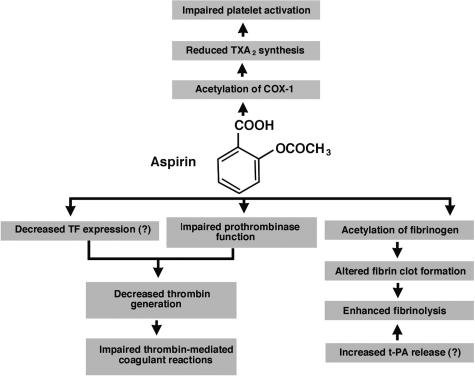Figure 1.
Antithrombotic effects of aspirin (acetylsalicylic acid) reported in the literature. The major well-documented antithrombotic action of aspirin is to acetylate cyclooxygenase-1 (COX-1) in platelets, leading to the inhibition of thromboxane A2 (TXA2) synthesis. Decreased production of this lipid platelet agonist impairs platelet aggregation. Additional effects of aspirin may include reduced thrombin formation and changes in the fibrin structure such as increased clot permeability. The former effect is probably due to impaired platelet function or possibly decreased tissue factor (TF) expression, whereas the latter effect is induced by acetylation of fibrinogen and can result in faster fibrin clot lysis. Another profibrinolytic effect of aspirin might be increased tissue-type plasminogen activator (t-PA) release from endothelial cells.

